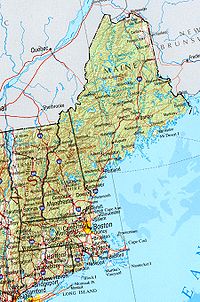- Civil Rights Council
-
Civil Rights Council 
Abbreviation CRC Motto we can make a difference Formation November 9, 2007 Type political Purpose/focus "To sound a call to action,
raise the flag and rally the country to the struggle for civil rights to achieve liberty and justice for all."Location Cambridge, Massachusetts Membership 1,700[1] Website http://www.civilrightscouncil.org/ Civil Rights Council was a pilot program in the 8th Congressional District of Massachusetts with 1,700 members.
Contents
Background
Founded November 9, 2007 in New England, Civil Rights Council emerged from the socio-economic challenges that arose in the wake of Hurricane Katrina. Its outlook expanded to include working and middle class issues.
The organization worked on two tracks:
- a short term track including greater social expenditures to house internally displaced people in the United States impacted by hurricanes, specifically, working to expand federal funding in order to provide these Americans with housing; and
- a long term track with weekly calls to action to galvanize the American public to "call attention to injustice wherever it lies."
Call to Action
"Call to Action" was Civil Rights Council's online organizing platform. Its primary purpose was to communicate with the public to educate Americans about what goes on in Washington and to facilitate greater democracy in the political process.
"Call to Action" promoted petitioning Washington calling on the United States Congress to advance legislation, writing e-mails and sending letters. Civil Rights Council harnessed the internet to educate people about the policy process and democracy.
Mission statement
Civil Rights Council connected people working across the country for change, petitioned Congress for passage of legislation, registers voters, educates the public and protects civil rights. The organization channels public energy towards increased accountability at the polls and actionable policy reform.
The organization worked to creating long term legislative solutions that channel resources to Americans in need. The organization advocates to the federal government to develop the infrastructure necessary to remedy the immediate impact of natural disasters by partnering to bring people together.
The pilot program sought to create institutions to empower people to engage in grass roots change at the local level. Their work built the movement by campaigning to advance equality by challenging convention in calling attention to injustice wherever it lies. The organization committed itself to creating common sense solutions to every day problems.
The civil rights organization called itself the 'outraged conscience of a nation': outraged that the government is unable to summon the resources necessary to bring the country together. The American Declaration of Independence declares "that all men are created equal." Civil Rights Council challenged Congress to fulfill the promise of American democracy in the pledge of allegiance to achieve "liberty and justice for all."
Policy positions
Gulf Coast Housing Recovery Act
Civil Rights Council sought passage of the Gulf Coast Housing Recovery Act. In the House of Representatives, House Resolution 1227 was co sponsored by Maxine Waters and Barney Frank. In the United States Senate, 12 Senators co-sponsored the partnering Senate Resolution 1668 the Gulf Coast Housing Recovery Act: John Kerry, Chris Dodd, Jack Reed, Chuck Schumer, Hillary Clinton, Dick Durbin, President Barack Obama, Bob Menendez, Mary Landrieu, Barbara Boxer, Bob Casey and Sherrod Brown.
The legislation was blocked in Committee by Richard Shelby and David Vitter
Community Development Block Grant
When the Gulf Coast Housing Recovery Act failed to clear the Senate Housing and Banking Committee Civil Rights Council partnered with Congress for passage of a $50 million Community Development Block Grant for Hurricane impacted communities.
Social Service Block Grant
Civil Rights Council currently supports increased expenditures for the Road Home program through a $500 million social service block grant. Road Home provides compensation for families and communities impacted by natural disasters.
The five Gulf Coast states -- Alabama, Louisiana, Mississippi, Texas, Florida -- are the primary beneficiaries of these kinds of expenditures.
Road Home faces a multi-billion dollar shortfall and if fully funded would be able to provide compensation for housing lost to hurricanes. Families receiving compensation from Road Home receive on average between $70 – 80,000 for a hurricane impacted home.
Political positions
Civil Rights Council's policy positions expanded to include Free Application for Federal Student Aid reform, Troubled Asset Relief Program reform, food safety and expanding education opportunities. The organization's focus grew, incorporating emerging issues and present problems. Civil Rights Council promotes a more qualified and peaceful approach in American foreign affairs.
Dissolution
Civil Rights Council disbanded on March 19, 2010. Organizational leadership sought a new name and a broader policy framework. In addition, Hurricane Katrina ceased to be the organizing framework within which Civil Rights Council worked. Civil rights were one among several issues the Council sought to work on. Civil rights didn't embrace a broad enough set of public policy issues as an issue area.
Structural reasons for dissolution revolved around an absence of training for future leadership. Civil Rights Council was a fantastically successful pilot program in one congressional district, that never developed the capacity to self actuate. In addition, the absence of an original name, confusion with other non-liberal civil rights councils, issue confusion and other challenges were more than leadership was able to resolve.
During the course of the 27 month pilot the organization moved from centrist to progressive perspectives and broadened the array of issues it worked on. A shift in emphasis occurred from focusing on being a single issue group to a multi-issue group. A single issue campaign shifted to call to action, weekly calls to action to galvanize the American public to "call attention to injustice wherever it lies."
References
Categories:- Organizations based in Massachusetts
Wikimedia Foundation. 2010.
